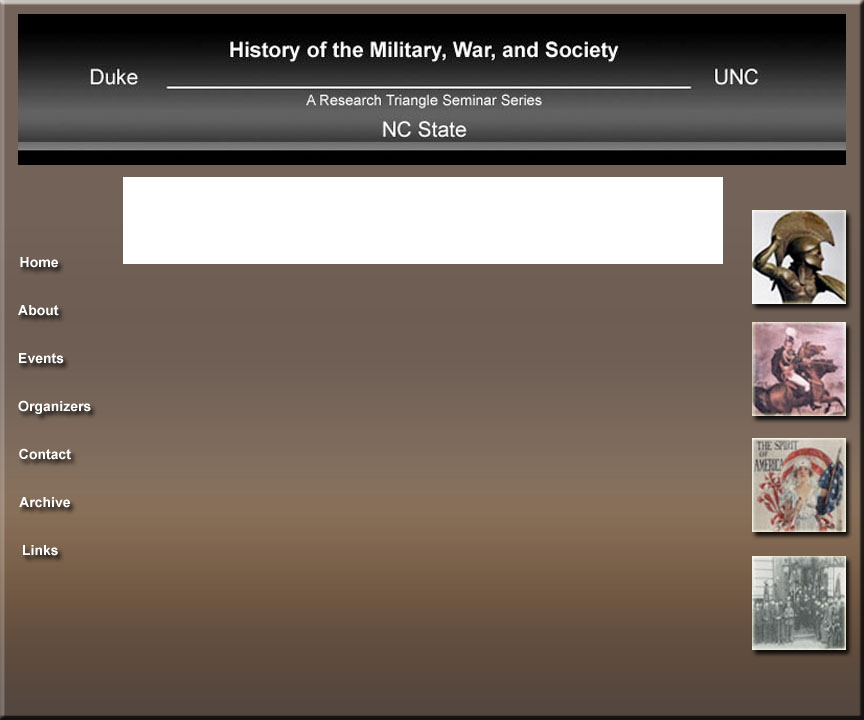
|
September 19, 2008 Sebastian Lukasik (Duke University) Combat and Identity on the Western Front: In the years 1917 – 1918, over a million Americans participated in active combat on the Western Front. Remarkably, most historians of the American experience of the Great War have marginalized the importance of encounters with modern warfare as a formative influence on the socio-cultural allegiances of “Doughboys.” Instead, scholars have dwelled on the historical context of Progressive Era social reform as the key with which to unlock the meaning of the Great War for its American participants. This paper seeks to reassess these historiographical trends. Using the evidence of letters, diaries, and memoirs of ordinary servicemen, it contends that battle, rather than exposure to the reformist agenda of Progressivism, functioned as the crucible of American soldiers’ group mentality during the First World War. Notwithstanding the brevity of active American belligerence, combat influenced American soldiers’ modes of self-identity and their relationship with the U.S. home front as no other aspect of their war experience did. Sebastian H. Lukasik is a Ph.D. candidate in the Department of History at Duke University. He is currently completing a dissertation entitled “Remember the Man at the Front”: Military Service, Combat, and American Identity in the Progressive Era. His research and teaching interests include the development of military institutions in the North Atlantic world in the 19th and 20th centuries; the emergence of the United States as a world power after 1865; and representations of war in literature, art, and film. |